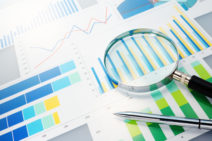Prostate HealthWith over 3 million cases per year, prostate cancer is a rapidly growing epidemic in the United States. Approximately 11.6% of men will be diagnosed with prostate cancer at some point during their lifetime (3). Although it is one of the most common forms of cancer among men, most cases are treatable. Despite the fact that many factors (such as age and family history) are outside of one’s control, there are various precautions one can take to reduce the risk of developing the disease. The American Cancer Society recommends eating at least 2.5 cups of fruits and vegetables daily, being physically active, and maintaining a healthy body weight. Aside from this, older men can also take supplements that support prostate health (2). Here are some things to look for in prostate health supplements:
Pumpkin Seeds, also known as “pepitas,” contain high amounts of zinc, which is essential to prostate health. One cup of pumpkin seeds provides almost half the recommended daily allowance (RDA) of zinc. While more research is needed to confirm the direct link between the zinc in pumpkin seeds and prostate health, it is thought that eating a handful of pumpkin seeds per day (or taking pumpkin seed oil supplements) may help maintain normal zinc levels.
Research showsSaw Palmettocan alleviate symptoms of an enlarged prostate (benign prostatic hypertrophy, BPH). While saw palmetto does not decrease the size of the prostate, according to WebMD, “it seems to shrink the inner lining that puts pressure on the tubes that carry urine” (15).
Urtica dioica, orStinging Nettle, is a common herbal remedy for an enlarged prostate and frequent urination. A study conducted in 2013 indicated that stinging nettle contained compounds which may inhibit the enzyme 5-alpha reductase, which converts testosterone into dihydrotestosterone (DHT), a powerful hormone associated with prostate enlargement, low testosterone levels in aging men, and hair loss (9).
Ashwagandhahas been used in alternative medicine for decades to help slow the process of Andropause, or “male menopause.” It is an herb shown to improve libido, increase energy and testosterone levels, promote vitality, and support male fertility (8).
Low TestosteroneAs men age, they are more likely to experience low libido, erectile dysfunction, low energy, and depression; all symptoms of low testosterone levels. Low testosterone is defined as 300 ng/dL (nanograms per deciliter) of total testosterone and less than 5 ng/dL of free testosterone (16). In men over age 30, 1 in 4 will have low levels of testosterone, even though they may not show symptoms (18).
Testosterone in the blood is bound to a protein known as sex hormone binding globulin (SHBG). “Free testosterone” is bioavailable (or “usable”) and is not bound to SHBG. Over the counter, herbal supplements are sold that can help raise free testosterone levels. These supplements are an excellent alternative to seeking testosterone-replacement therapy from a physician, which without being closely monitored, can have adverse effects on one’s heart, liver, and kidneys (11). Here are some things to look for in libido-enhancing, testosterone-boosting supplements:
L-Arginineand L-Citrullineare nitric oxide boosters which aid in circulation and help to facilitate arousal.
Horny Goat Weed, or “yin yang huo,” has been used for decades in Chinese medicine. According to the folk tale, the herb got its name when a goat hoarder noticed his flock become sexually aroused after consuming the plant. It is an herb that has been used historically by those suffering from erectile dysfunction, involuntary ejaculation, and low desire. The supplement works by increasing blood flow, resulting in an erection (12).
Tribulus, or T. terrestris, is a spiny plant native to warm regions of the globe. Tribulus can be used to raise testosterone. It is also an ingredient in many homeopathic libido products for both men and women (17).
Maca, a Peruvian root grown in the Andes Mountains, is a well-known aphrodisiac. It is also a superfood used for a variety of things, including overall wellbeing. Maca contains sterols which are believed to block the production of estrogen and increase natural testosterone levels, therefore aiding in sexual stimulation (13).
Deer Antler VelvetandGinsenghave been used by the ancient Chinese as an aphrodisiac for centuries. Deer Antler Velvet is acquired by removing the antlers from the animal before they solidify into the bone and the velvet is harvested, posing no harm to the creature (5, 6, 10).
Fenugreekhas been known to improve sexual performance in men by reducing symptoms of erectile dysfunction. A study published in Phytotherapy Research conducted over a six-week period showed that fenugreek had a significant influence on sexual arousal, energy, stamina, and testosterone levels (1).
D-Aspartic Acid (D-AA)is is one of two forms of the amino acid aspartic acid. It is proven to raise testosterone levels in men by releasing hormones in the brain (4).
DIM (Diindolymethane)is a phytonutrient found naturally in many vegetables such as broccoli, bok choy, and kale. In a testosterone booster, DIM is used to regulate and block estrogen production. In older men, rising estrogen can compete with falling testosterone levels (7).
Note that it is also extremely important to take fish oil while taking a testosterone booster, because DHA aids in the transportation of testosterone. Additionally, a potential side effect of over-the-counter testosterone supplements is dry joints, so fish oil may help to alleviate discomfort. Please consult with a physician before beginning a dietary supplement regimen.
References
- “Best Natural Herbs for Erectile Dysfunction: A Focus on Fenugreek.” com, 11 Aug. 2016.
- “Can Prostate Cancer Be Prevented?” American Cancer Society, 11 Mar. 2016.
- “Cancer Stat Facts: Prostate Cancer.” Surveillance, Epidemiology, and End Results Program, Cancer.gov.
- “D-Aspartic Acid - Scientific Review on Usage, Dosage, Side Effects.” com, Examine.com, 29 Apr. 2017.
- “Deer Antler Velvet and Libido.” Nutronics Labs.
- “DEER VELVET: Uses, Side Effects, Interactions and Warnings.” WebMD, WebMD.
- “DIM (Di-Indoly Methane) For Natural Protection from Estrogen's Effects.” Natural Health Information, Products, and Consultations.
- Edward Group DC, NP, DACBN, DCBCN, DABFM. “Ashwagandha and Men's Health.” Dr. Group's Healthy Living Articles, Global Healing Center, Inc, 13 Aug. 2013.
- Edward Group DC, NP, DACBN, DCBCN, DABFM. “Stinging Nettle for Prostate Health.” Global Healing Center, Global Healing Center, Inc, 5 Aug. 2013.
- “Firm Up Your Sex Life with Korean Red Ginseng.” Life Enhancement Products.
- “Free Testosterone.” rochester.edu, University of Rochester Medical Center.
- “HORNY GOAT WEED: Uses, Side Effects, Interactions and Warnings.” WebMD, WebMD.
- Lesser, Kathy. “Have You Had Your Maca Root Today?” The Libido Cafe, 28 Sept. 2015.
- McDermott, Annette. “Can Pumpkin Seeds Improve My Prostate Health?” Healthline, Healthline Media, 6 July 2016.
- “SAW PALMETTO: Uses, Side Effects, Interactions and Warnings.” WebMD, WebMD.
- “Test ID: TTFB Testosterone, Total, Bioavailable, and Free, Serum.” Mayo Medical Laboratories, Mayo Clinic.
- “TRIBULUS: Uses, Side Effects, Interactions and Warnings.” WebMD, WebMD.
- Vann, Madeline. “1 In 4 Men Over 30 Has Low Testosterone.” ABC News, ABC News Network, 23 Mar. 1970.










